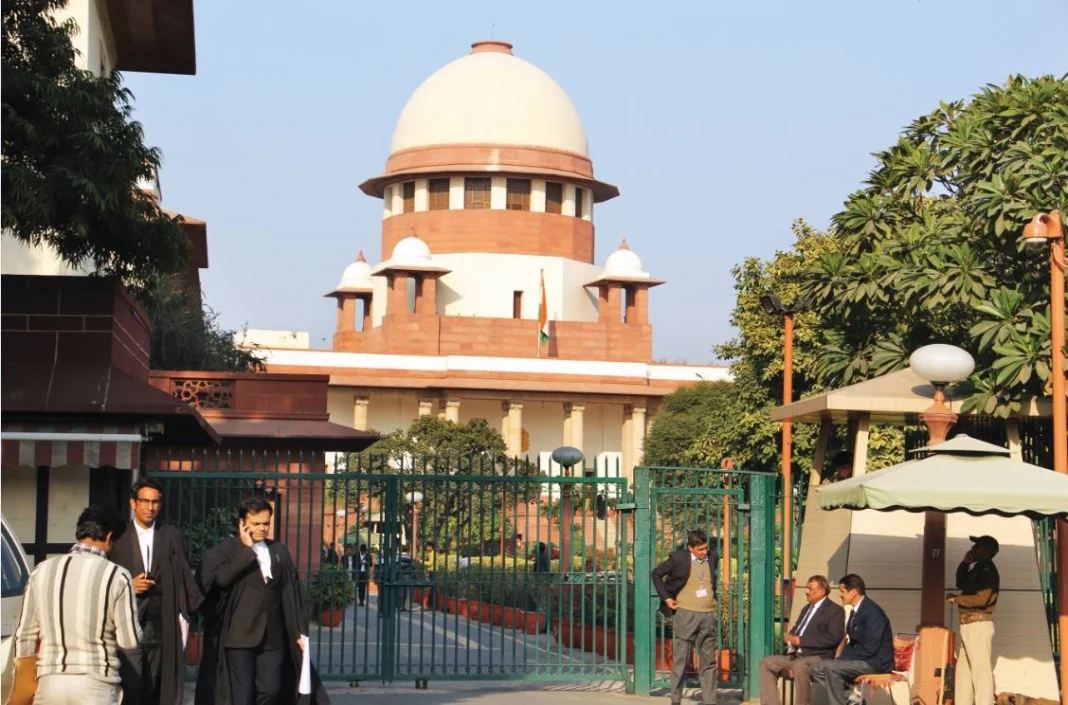By Dr Swati Jindal Garg
Frederick Douglass once said: “Where justice is denied, where poverty is enforced, where ignorance prevails, and where any one class is made to feel that society is an organized conspiracy to oppress, rob, and degrade them, neither persons nor property will be safe.” The contemporary judiciary, grappling with inefficiencies, validates Douglass’s words.
The Supreme Court recently voiced its concerns over case listing in High Courts, particularly the Allahabad High Court, highlighting a systemic collapse. “In some High Courts, we don’t know what will happen. Allahabad High Court is one of the High Courts which really one should be worried about. Filing has collapsed, listing has collapsed—nobody knows which matter will be listed,” observed a bench of Justices Surya Kant and N Kotiswar Singh during a hearing.
The remarks came while addressing a plea by Abbas Ansari, son of the late gangster-turned-politician Mukhtar Ansari. Despite a Supreme Court directive for expeditious hearings, Ansari’s petition for interim relief against an ex-parte UP government order declaring a piece of land an evacuee property (government property) remained unaddressed in the Allahabad High Court. Ansari also claimed that the government authorities had begun constructing dwelling units on his land, declared government property, under the Pradhan Mantri Awas Yojana. He pleaded that while other co-owners had secured interim relief from the Allahabad High Court, his prayer for interim protection was not taken up for hearing.
Taking note of the contentions raised in the plea, Justice Kant ordered that the matter be listed earliest before the Allahabad High Court, and in the meantime, directed the parties to maintain status quo in respect of the disputed site.
The Supreme Court’s worries are not new. Registry inefficiencies have plagued Indian courts for decades. Last year, a bench led by Justice AS Oka had criticized the Supreme Court Registry for failing to list a Special Leave Petition (SLP) despite specific directions. The Court noted the troubling lack of accountability, asking, “Why is this order not complied with?”
Even the process of listing cases is fraught with delays. While fresh matters are scheduled based on rosters, politically sensitive or unclear cases require special directions from the chief justice, often resulting in bottlenecks. Advocates lament that the urgency of cases is undermined by registry delays, from notification of defects to registration and verification.
An advocate, who chose to remain anonymous, pointed out that “even defect-free matters are not a shoe-in to be listed immediately as even if a matter is defect-free, there are so many stages through which it goes—registration, verification.” Most advocates also lament that the Courts are seemingly more accommodating of fresh matters.
Despite procedural safeguards, registry officials often wield subjective authority. Advocates often allege inconsistency: “One officer raises defects; another doesn’t. It’s arbitrary.” The challenge is exacerbated when cases requiring immediate attention fall through the cracks due to an officer’s leave or internal bottlenecks.
REGISTRY WOES
1. Administrative checks frequently overstep into judicial scrutiny.
2. Advocates must repeatedly follow up on defect-free cases to get them listed.
3. Well-connected parties often gain an advantage in prioritization.
There is no denying that the Registries of the courts are a little overworked because of the large number of cases that are filed at the Supreme Court daily. The apex court is extremely busy and there is a huge backlog of cases. Consider this: In August 2024, the Supreme Court worked 18 days and received 5,530 new cases—an average of 307 daily filings. This staggering caseload overwhelms registries, with over 15,901 unregistered cases pending as of last month.
The Way Forward
Technology offers a potential solution. Implementing automated systems for defect-free case listings, similar to those in High Courts with Original Jurisdiction, could ease delays. Advocates stress that while administrative efficiency is critical, due diligence must not be sacrificed.
In a system strained by an overwhelming backlog, the need for reform is urgent. Justice delayed may indeed be justice denied, but it must also be ensured that justice hurried is not justice buried.
—The author is an Advocate-on-Record practising in the Supreme Court, Delhi High Court and all district courts and tribunals in Delhi



